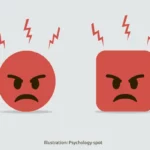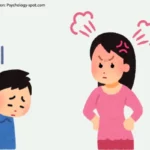
Unsolicited advice are our daily bread. They are everywhere. They haunt us in everyday life and on the Internet. There are always “advisers” willing to “give us” their wisdom, people who give advice without asking to the point of being truly invasive or even offensive.
From asking for advice to receiving unsolicited advice
In everyday life we have to constantly make decisions, from the smallest to the most vital ones. Fortunately, we can turn to other people for advice. We can ask a financial adviser how to invest our savings or ask the waiter to advise us on a dessert. We can also ask our friends for advice about a problem at work or a conflict in the couple.
However, sometimes such advice rains down on us from heaven. Then they stop being helpful and become an intrusion into our privacy. In a certain way, the counselor invades our emotional space by taking himself the right to cross a psychological limit.
In fact, although advice are nothing more than subjective opinions that are transmitted to someone with the intention of helping them guide their behavior, deep down they can also be perceived as a negative judgment, since they indicate that that person believes that we are not capable of finding a solution or solve the problem alone.
A very interesting experiment conducted at Harvard University revealed a paradox about advice: solicited advice are often worse than unsolicited ones, but when people ask for them, they pay more attention, so they tend to be more effective and lead to a change in decisions more frequently. Instead, people feel safer and more confident when they offer unsolicited advice.
In fact, psychologists from the University of Singapore found that giving advice makes us feel powerful. These researchers explain that although giving advice may seem – and in fact in many cases is – generous and kind, it also creates an imbalance of power, because it implicitly suggests that the person receiving advice needs something from the person offering them or is not capable to solve the problem. Sometimes, it’s true. We cannot always navigate the complexities of life alone. But other times it’s just a wrong assumption.
Not even therapists escape this reality. Another study conducted at the University of Maryland found that when therapists provide unsolicited advice, client collaboration and responsiveness decreases immediately afterward. It also revealed that people who give unsolicited advice tend to have an anxious attachment style, which means they are emotionally hypersensitive, overly distressed and often dramatize situations.
Doing away with unsolicited advice
Whoever gives advice wants to be useful. And many of us (myself included) offer guidance and suggestions with the intention of helping. However, the line between helping and meddling is very fine.
Repeatedly giving unsolicited advice can end up causing problems in the relationship. They can be perceived as disrespectful and can even convey an air of superiority, because we assume that we know what is best for that person.
For that reason, unsolicited advice are perceived more as criticism than help. In fact, they can even undermine people’s ability to figure out what’s best for themselves and solve problems by activating their resources.
Giving unsolicited advice can also be a very frustrating experience for the giver. When our advice is not accepted or appreciated, we feel upset, hurt or resentful, so it ends up being frustrating trying to “help” the other without seeing the results.
So the next time we’re offered unsolicited advice, it’s a good idea to remember that the person is probably just trying to help us. Instead of reacting defensively, it is better to thank them for their concern and set a line by making things clear: “Thanks for your advice, but it is a very personal matter” or “I appreciate your concern, but I don’t need your advice”.
On the other hand, before daring to give advice, we must make sure that we have understood what that person needs. Maybe he just needs someone to listen to him. Or a listening ear and understanding shoulder. Maybe he just needs to do catharsis to achieve some mental clarity…
Therefore, before we rush to “fix” someone’s problems, we should ask ourselves:
Why do I want to give advice at this precise moment?
Would I be empathetic and respectful?
What else can I do that is more useful?
Is there someone more qualified who can help him?
Do he has the necessary psychological resources to solve the problem alone?
Of course, like many things in life, is easier said than done, but asking these questions before offering unwanted advice can save us a lot of misunderstanding and frustration.
What to do if someone asks us for advice?
Finally, if a person asks us for advice, it is important not to feel pressured and get away with the first set phrase that comes to mind – often as bombastic as meaningless. Try to put yourself in their place and understand what they are going through.
Don’t assume that what was useful to you will also be useful to others. Don’t think that the way you would solve the problem will also work for others. Instead of giving blunt advice, it is better to lend an empathetic ear and try to empower the other. Instead of advising, you can ask: What do you think you can do?
In this way, you will not assume what is best for him/her and at the same time you will help him/her find a solution that really fits his/her personality and adapts to his/her situation. After all, we cannot assume that our experiences are valid for others or that our perspective is the correct and only possible one.
Sources:
Prass, M. et. Al. (2020) Solicited and Unsolicited Therapist Advice inPsychodynamic Psychotherapy: Is it Advised? Counselling Psychology Quarterly; 34(2): 253-274.
Dillon, K. D. (2019) Don’t ask, don’t tell: The problems with soliciting advice. Tesis doctoral: Universidad de Harvard.



